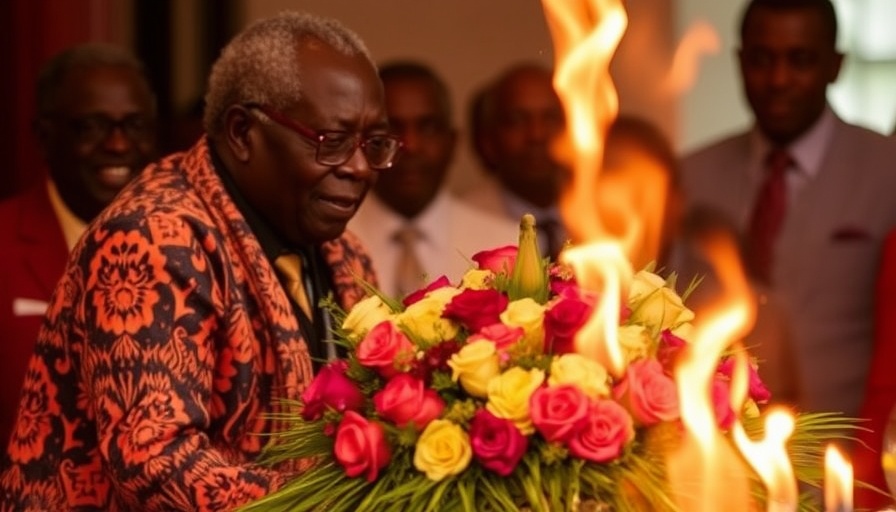
A Pioneering Legacy: The Life and Death of Ngugi wa Thiong’o
The literary world mourns as celebrated Kenyan author and scholar, Prof. Ngugi wa Thiong’o, was cremated in the US, honoring his personal wishes. His son, Prof. Mukoma wa Ngugi, has reiterated that this choice, while divergent from traditional Kenyan customs, was emblematic of his father’s forward-thinking nature. At 87, Ngugi passed away on May 28 in Atlanta, leaving behind a rich legacy that transcends mere literary accomplishment.
A Brave Decision in a Cultural Context
Cremation, though uncommon in Kenya, has been chosen by some notable figures, including fellow author Prof. Micere Mugo, who passed away earlier this year. Prof. Mukoma further emphasizes that his father’s decision was not only “brave” but also a deeply personal one. “If I die, why would I want my body with the luggage?” he reflected, advocating for the acceptance of his father’s choices. Such decisions challenge conventional narratives about death and burial in African cultures, sparking dialogues on cultural evolution and personal agency.
The Impact of Ngugi’s Works on African Identity
Ngugi wa Thiong’o was more than an author; he was a cultural icon whose works often examined colonial legacies, societal structures, and African identity. His influence permeates literature, academic circles, and activism across the continent. His advocacy for indigenous languages and cultures challenged the status quo and encouraged a new generation of writers and thinkers to embrace the complexities of African narratives.
Acknowledging the Contrast: Tradition versus Modernity
As Africa grapples with the juxtaposition of tradition against modernity, Ngugi’s final wishes reflect a broader discourse on how cultural practices evolve. This instance serves as a poignant reminder of the ongoing tensions between inherited customs and contemporary ideologies within African societies. Policies affecting cultural identity must adapt to accommodate diverse perspectives while honoring deep-rooted traditions.
Reflections on the Future of African Literature
Ngugi’s passing has reignited conversations about the preservation and promotion of African literature. With influential figures advocating for literary representation on global stages, the impact of Ngugi’s work is likely to inspire future writers to explore similar themes that resonate with African experiences. The evolving narrative landscape calls for greater acknowledgment of African voices in both domestic and global dialogues.
In conclusion, the cremation of Ngugi wa Thiong’o not only honors his personal wishes but also opens a gateway for discussions on the intersection of culture, identity, and the legacy of one of Africa’s most influential literary figures. As we reflect on his life, it is crucial for scholars, policymakers, and cultural advocates to consider how we preserve and cherish African narratives moving forward.
 Add Row
Add Row  Add
Add 


Write A Comment